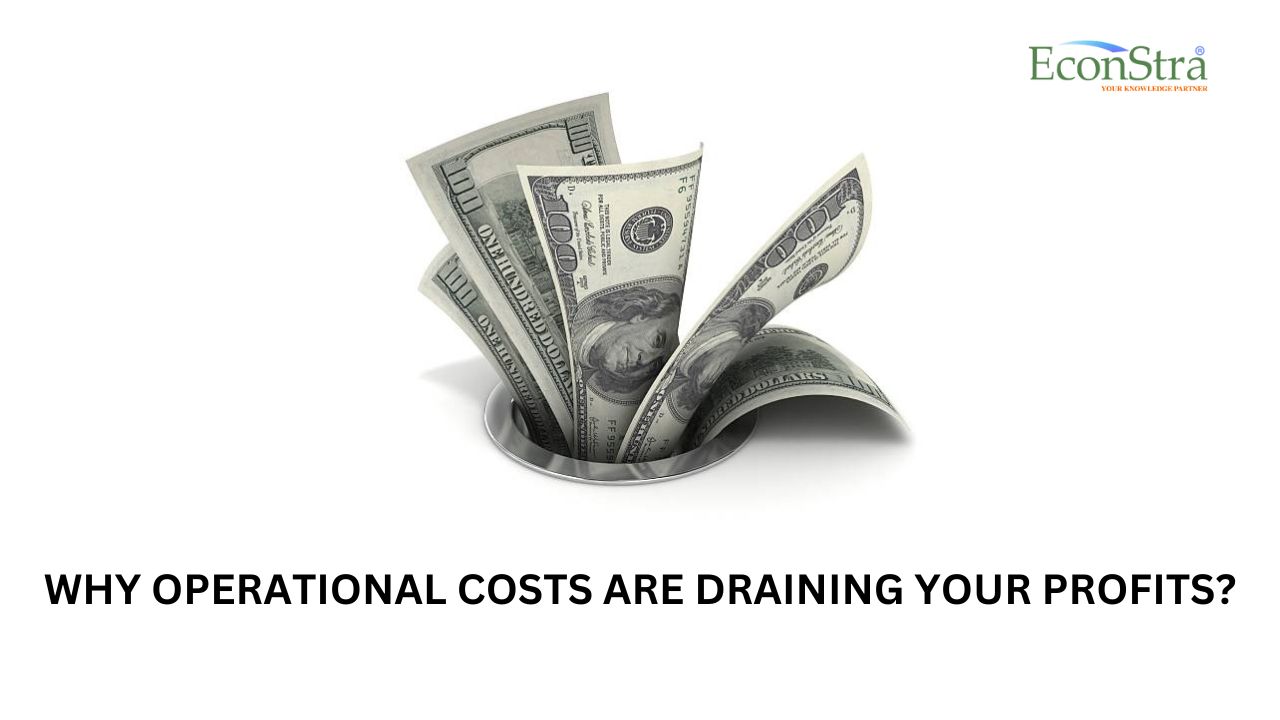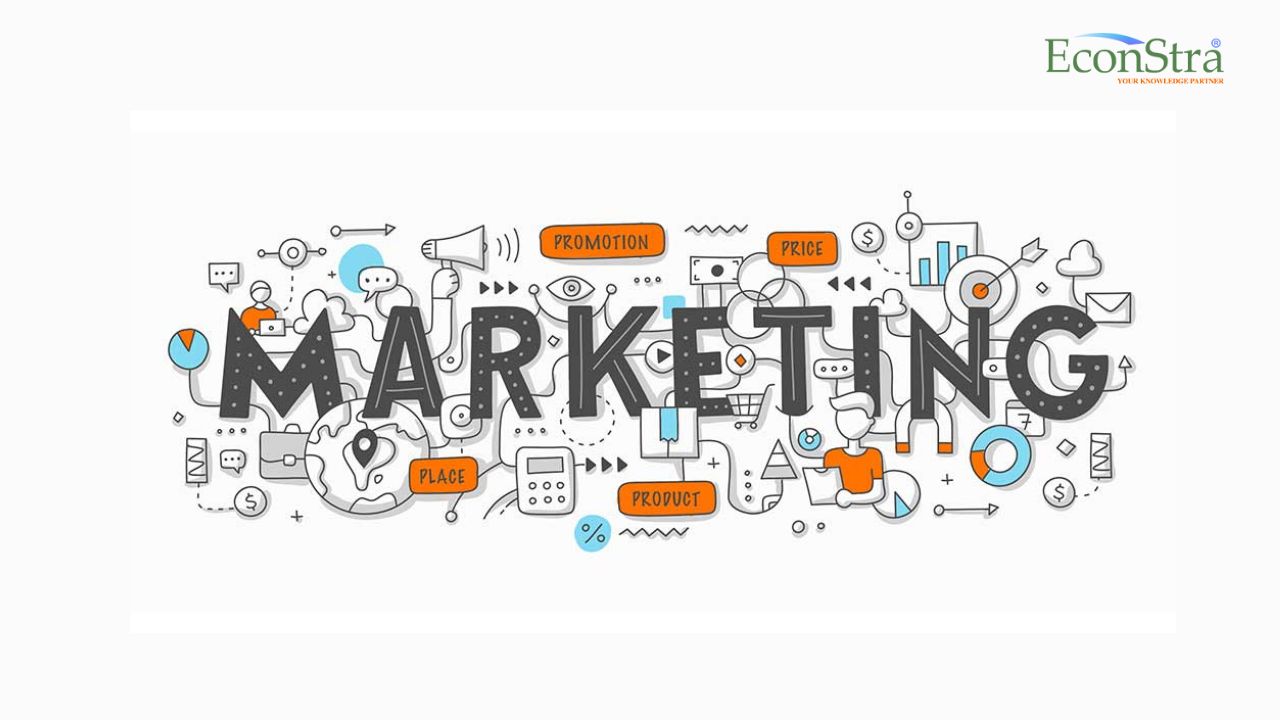by Soumyajit Admin
Share

The world of manufacturing is ever-evolving, with new technologies and trends constantly reshaping the industry landscape. Whether you are an aspiring entrepreneur or an established business owner looking to diversify, choosing the best manufacturing business idea is crucial for success. In this blog post, we’ll take you on a journey through the exciting possibilities that lie ahead in the manufacturing sector for 2024.
Brief Overview of the Manufacturing Industry And Best Manufacturing Business Ideas in 2024
The manufacturing industry is the unsung hero that forms the bedrock of economies across the globe. It is a vast and diverse sector that spans numerous domains, from the creation of raw goods to the assembly of intricate products. This multifaceted industry thrives on dynamism, constantly evolving to keep pace with technological advancements and shifting consumer preferences. At its core, manufacturing is not just about producing tangible items; it’s a powerhouse of innovation, where ideas are transformed into reality.
One of the most remarkable attributes of the manufacturing sector is its ability to generate employment opportunities on a massive scale. Factories, production facilities, and workshops employ millions, offering individuals a chance to contribute their skills and talents to the production process. Moreover, manufacturing extends its reach beyond domestic boundaries, playing a pivotal role in global trade and economic interdependence.
In essence, manufacturing is the heartbeat of progress, continually pushing the boundaries of what is possible. It fuels the development of cutting-edge technologies, from robotics to artificial intelligence, and propels us towards a future where innovation knows no bounds. So, as we explore the best manufacturing business ideas for 2024, we’re not just embarking on a journey of entrepreneurship; we’re delving into the very essence of human progress itself.
The Importance of Choosing the Right Manufacturing Business Idea
Not all manufacturing ventures are created equal. Selecting the right business idea can make the difference between prosperity and struggles. Factors such as market demand, personal interests, and emerging trends play a pivotal role in this decision-making process.
So, today, here in this blog post, we are going to provide you with insights into the most promising manufacturing business ideas for 2024. We’ll delve into emerging market trends, factors to consider before starting a manufacturing business, and case studies of successful ventures to guide your entrepreneurial journey.
Recent Market Trends in the Manufacturing Business Industry
A. Current Trends Shaping the Manufacturing Sector
The manufacturing sector is in a constant state of flux, driven by a myriad of current trends that are reshaping its landscape. One of the prominent trends is the increasing emphasis on sustainability and eco-friendliness. Consumers and governments alike are demanding greener products and processes, leading manufacturers to adopt eco-friendly practices and materials.
Furthermore, automation and Industry 4.0 are revolutionizing manufacturing, with smart factories and robotics enhancing productivity and efficiency. Supply chain resilience is another critical trend, magnified by global disruptions, prompting businesses to reevaluate and optimize their supply chain strategies.
Lastly, the rise of customization and personalization, driven by consumer preferences, is transforming traditional manufacturing methods. These trends collectively underscore the need for adaptability and innovation, guiding entrepreneurs towards lucrative manufacturing opportunities that align with these evolving dynamics.
B. How These Trends Affect the Choice of Manufacturing Business Ideas
The evolving trends in manufacturing exert a profound influence on the selection of manufacturing business ideas. Firstly, the emphasis on sustainability and eco-friendliness creates a ripe environment for entrepreneurs to develop innovative, environmentally-conscious products and processes. Businesses that prioritize sustainability can not only meet consumer demands but also benefit from incentives and cost savings associated with green practices.
Secondly, the advent of automation and Industry 4.0 technologies means that manufacturing businesses focusing on automation solutions, robotics, and smart manufacturing systems are well-positioned for success. These technologies enhance efficiency and reduce operational costs, making them attractive options.
Moreover, addressing supply chain resilience concerns by offering localized or diversified supply chain solutions can be a strategic choice. Lastly, the trend towards customization and personalization opens doors for businesses that can cater to individualized consumer needs, such as niche product manufacturing or personalized product design services.
In essence, staying attuned to these trends not only informs the choice of manufacturing business but also provides a blueprint for innovation and success in the evolving manufacturing landscape.
C. The Significance of Staying Updated with Industry Trends
Staying updated with industry trends is pivotal for manufacturing businesses’ longevity and success. It provides a competitive edge by enabling timely adaptation to changing consumer preferences and technological advancements. Knowledge of trends allows companies to anticipate market shifts, identify emerging opportunities, and align their strategies accordingly. By staying informed, businesses can optimize their operations, remain relevant, and remain resilient in a dynamic marketplace. So, on a simple note, keeping a finger on the pulse of industry trends is not just advantageous; it is essential for thriving and thriving in the ever-evolving manufacturing sector.
Also read: Business Plan For Startups
Factors to Consider Before Starting a Manufacturing Business
Starting a manufacturing business is a significant undertaking that requires careful consideration of various factors to ensure success. Here are some key factors to contemplate before diving into this venture.
- Market Research: Begin by researching the demand for your product. Understand your target audience, competitors, and market trends to assess if there’s a viable market for your manufacturing business.
- Business Plan: Create a detailed business plan outlining your objectives, financial projections, production processes, and marketing strategies. A solid plan will guide your efforts and attract potential investors or lenders.
- Legal Requirements: Comply with all legal and regulatory requirements, including permits, licenses, environmental regulations, and safety standards. Failing to do so can lead to costly legal issues.
- Location: Choose a suitable location for your manufacturing facility, considering factors like proximity to suppliers, accessibility, and transportation infrastructure.
- Equipment and Technology: Invest in the right machinery and technology for your manufacturing process. Ensure they meet industry standards and can scale with your business.
- Supply Chain Management: Establish a reliable supply chain for raw materials and components to avoid production delays.
- Financing: Determine your startup costs and secure adequate funding through loans, investors, or personal savings.
- Skilled Workforce: Hire skilled and qualified personnel who can operate machinery and ensure product quality.
- Quality Control: Implement stringent quality control measures to maintain product consistency and customer satisfaction.
- Marketing and Distribution: Develop a marketing strategy to promote your products and establish distribution channels to reach your target market effectively.
- Risk Management: Identify potential risks and have contingency plans in place to mitigate them.
- Sustainability: Consider sustainable practices to reduce environmental impact and attract eco-conscious consumers.
Before launching your manufacturing business, thorough planning and preparation are essential to minimize risks and increase your chances of long-term success.
Best Manufacturing Business Ideas in 2024
Here is a compilation of manufacturing business concepts to assist you in embarking on your entrepreneurial journey:
-
Food Production Business:
The food and beverage industry are among the world’s largest, producing a vast array of consumer food products. This industry generates billions of dollars globally. You can specialize in various food categories, including snacks, cereals, dairy products, canned fish, and nuts. A unique approach within the food industry is to focus on specific dietary needs, such as vegan or gluten-free offerings. An advantage of food manufacturing is the ability to distribute products through various channels, such as grocery stores, health food shops, social media, and online marketplaces.
-
Textile Manufacturing:
Textile manufacturing encompasses the transformation of natural fibres like cotton, wool, silk, and linen, as well as synthetic fibres like polyester, nylon, acrylic, and rayon, into fabric. This involves processes such as spinning, knitting, weaving, dyeing, and finishing textiles. As a textile manufacturer, you can produce a wide range of products, including clothing fabrics, upholstery materials, carpets, curtains, towels, and industrial textiles. Initiating a textile manufacturing venture necessitates investments in equipment like spinning machines, weaving looms, knitting machines, and printing/dyeing machinery. Additionally, adherence to safety and environmental regulations is crucial, and sourcing various textile fibres serves as the foundation of this business.
-
Herbal Care Products Manufacturing:
Manufacturing herbal products represents a niche business opportunity centred around crafting organic products that promote health and wellness. These products typically feature botanical and plant-based ingredients and serve purposes such as maintaining health or addressing specific medical conditions. Herbal product categories may include toothpaste, skincare items, and health beverages. Notably, there is substantial demand for herbal care products, with up to 80% of the global population in developing countries relying on them. Thus, entering this industry holds significant potential.
-
Candle Production Business:
Candle-making enterprises specialize in producing candles from wax. Candles serve diverse purposes, including home decoration, relaxation, and religious ceremonies. Candle-making allows for creativity, involving experimentation with colors, shapes, scents, and designs. Varieties of candles include scented candles, dinner candles, votive candles, soy candles, and pillar candles. Marketing unique and personalized scented candles sets you apart in the market. Additionally, candle-making can begin on a small scale, even from a home-based operation.
-
Paper Manufacturing:
The paper manufacturing industry, often overlooked, boasts a substantial market valued at $352.53 billion in 2021, with projected growth to $373 billion by 2029. This industry is integral to everyday activities, providing paper for packaging, note-taking, and shopping. Paper production entails the conversion of cellulose fibres from plants into various paper products, such as toilet paper, notebooks, paper cups, envelopes, packaging boxes, and paper bags. An advantage of paper products is their eco-friendliness and recyclability.
-
Pharmaceutical Manufacturing:
Pharmaceutical manufacturing is a professional venture involving the production of medications and healthcare products while adhering to stringent regulations. Specializations can range from producing medications to essential medical supplies like syringes, gloves, masks, and catheters.
-
Plastic Manufacturing:
Plastic manufacturing encompasses the creation of containers and items from plastic materials through processes like melting, molding, and cooling. Examples of plastic products include pens, freezer containers, water bottles, and disposable syringes. Entrepreneurs can choose to focus on a single type of plastic item or produce a variety, depending on budget and market demand.
Also read: Tips To Improve Employee Productivity
-
Automotive Parts Manufacturing:
The automotive parts industry was estimated at $427.51 billion in 2022, with a 4.0% CAGR projected from 2023 to 2030. This sector involves the production of components for vehicles, including wheels, engine parts, bolts, gears, and electrical systems. Given that a single car can contain up to 30,000 parts, suppliers play a crucial role in the automotive industry. Notable examples of automotive parts manufacturers include Valeo, Magna, Denso, and Bosch.
-
Sports Equipment Manufacturing:
Sports equipment manufacturing encompasses the production of gear for various sports, such as balls, nets, helmets, shoes, bats, rackets, gloves, jerseys, and protective gear. In 2022, the sports equipment industry generated revenue estimated at $17.44 billion in the US alone. To establish a sports equipment manufacturing business, investments in production tools and machinery like 3D printers, CNC machines, molding equipment, sewing machines, and laser cutters are necessary. Additionally, sourcing materials like fabrics, foams, plastics, rubber, and metals is vital. As more individuals engage in sports for recreation and fitness, the demand for quality sports gear continues to rise.
-
Furniture Manufacturing:
The furniture industry is forecasted to exceed $545.78 billion in 2020, with an anticipated CAGR of 5.4% between 2021 and 2027. Furniture manufacturing involves crafting furniture pieces from materials such as wood, metal, glass, and upholstery fabrics. Establishing a furniture manufacturing business necessitates setting up a workshop, procuring woodworking tools, and hiring skilled personnel. Popular furniture items include chairs, tables, picture frames, and jewelry boxes.
-
Chemical Production:
Chemical production focuses on creating chemicals utilized across various industries, from toothpaste and ballpoint pens to insecticides. Launching a chemical production enterprise requires adherence to stringent regulations to ensure product, customer, and employee safety. Examples of chemical products encompass fertilizers, petrochemicals, pesticides, adhesives, fragrances, and lubricants.
-
Toy Manufacturing:
The toy-making industry is projected to reach $439.91 billion by 2030, with a 4.7% CAGR. Entering the toy-making sector offers profitability, especially when producing safe and educational toys for children. The emphasis lies on creating entertainment that is both enjoyable and conducive to children’s cognitive development.
-
Electronics Manufacturing:
Electronics manufacturing involves the production of electronic components essential for various products’ functionality. This industry is steadily growing due to increased demand worldwide. For instance, 97% of individuals in the US own cell phones, underscoring the significance of electronics in daily life. The process entails raw material sourcing, design, testing, assembly, and distribution.
-
Pet Food and Supplies Manufacturing:
Manufacturing products for pets, including food, snacks, and supplies for dogs and cats, represents a lucrative opportunity. The pet food and supplies industry is forecasted to reach $139.29 billion by 2040, driven by the humanization of pets and growing awareness of pet nutrition. Launching a pet food business involves sourcing ingredients like meats, vegetables, and grains, alongside the acquisition of tools like ovens and mixers. Entrepreneurs can opt to offer a range of pet food options, including gluten-free and hypoallergenic products. Additionally, providing pet-related supplies such as toys, litter boxes, and pet beds complements this venture.
-
Cosmetics Manufacturing:
Cosmetics production presents a small-scale manufacturing business focused on creating cosmetic and personal care products like hair oils, lip glosses, eye shadows, and lashes. Cosmetics can encompass items such as soaps, shampoos, hair products, and moisturizers. These products serve the purpose of cleansing and enhancing physical appearance. Cosmetic manufacturers must comply with industry regulations concerning materials and product standards.
NOTE:
Amidst the evolving landscape of manufacturing in 2024, one of the most promising opportunities lies in specialized consultancy services like those offered by Econstra.com. With the manufacturing sector rapidly embracing innovation and technological advancements, businesses are seeking expert guidance to optimize their operations. Econstra stands out as a beacon of expertise, offering tailored consultancy services that drive efficiency, streamline processes, and navigate the complexities of modern production. Their focus on lean manufacturing principles, supply chain optimization, and sustainable practices aligns perfectly with the current industry demands. For entrepreneurs considering venturing into the manufacturing consultancy space, Econstra.com presents a compelling opportunity to meet the growing needs of an industry eager for strategic guidance and operational enhancement.
Also read: Why Choose Econstra For Manufacturing Consultancy?
The Final Word: Best Manufacturing Business Ideas in 2024
So, it is no surprise that the world of manufacturing in 2024 is brimming with opportunities for those willing to embrace innovation and change. By staying informed about market trends, considering essential factors, and exploring the top manufacturing business ideas we have discussed, you can position yourself for success in this dynamic industry.
As we have seen from the case studies, with determination, strategic planning, and a commitment to quality, manufacturing businesses can thrive even in the face of challenges.
So, embark on your journey, choose your manufacturing niche wisely, and remember that the future is bright for those who dare to make their mark in this ever-evolving sector. Here’s to a prosperous and innovative future in manufacturing!
STAY IN THE LOOP
Subscribe to our free newsletter.
In today’s competitive business landscape, companies are constantly seeking ways to reduce operational costs while maintaining or improving efficiency and customer satisfaction. Customer Relationship Management (CRM) systems have emerged as vital tools that enable businesses to achieve these goals. As a leading business consultancy, Econstra understands the importance of leveraging CRM technology to streamline operations, […]
Why Operational Costs Are Draining Your Profits? Operational costs are a critical aspect of running a successful business, but when not managed properly, they can drain your profits and stifle growth. In a competitive market, maintaining profitability requires keen oversight of expenses and strategic planning. Econstra, as a leading business consultancy, provides insights and strategies […]
In the rapidly advancing digital landscape, Artificial Intelligence (AI) tools have emerged as transformative assets for businesses. Their potential to enhance efficiency, streamline operations, and drive innovation makes them invaluable for business consultants and organizations worldwide. For business consultants in India, AI’s strategic application can be particularly advantageous in navigating a diverse and dynamic market. […]
In today’s competitive business landscape, marketing is more crucial than ever. Companies are constantly seeking innovative strategies to stay ahead of the curve. Yet, navigating the complexities of modern marketing requires more than just creativity; it demands expertise and strategic insight. This is where a Business Consultant can make a transformative impact. Business consultants offer […]




